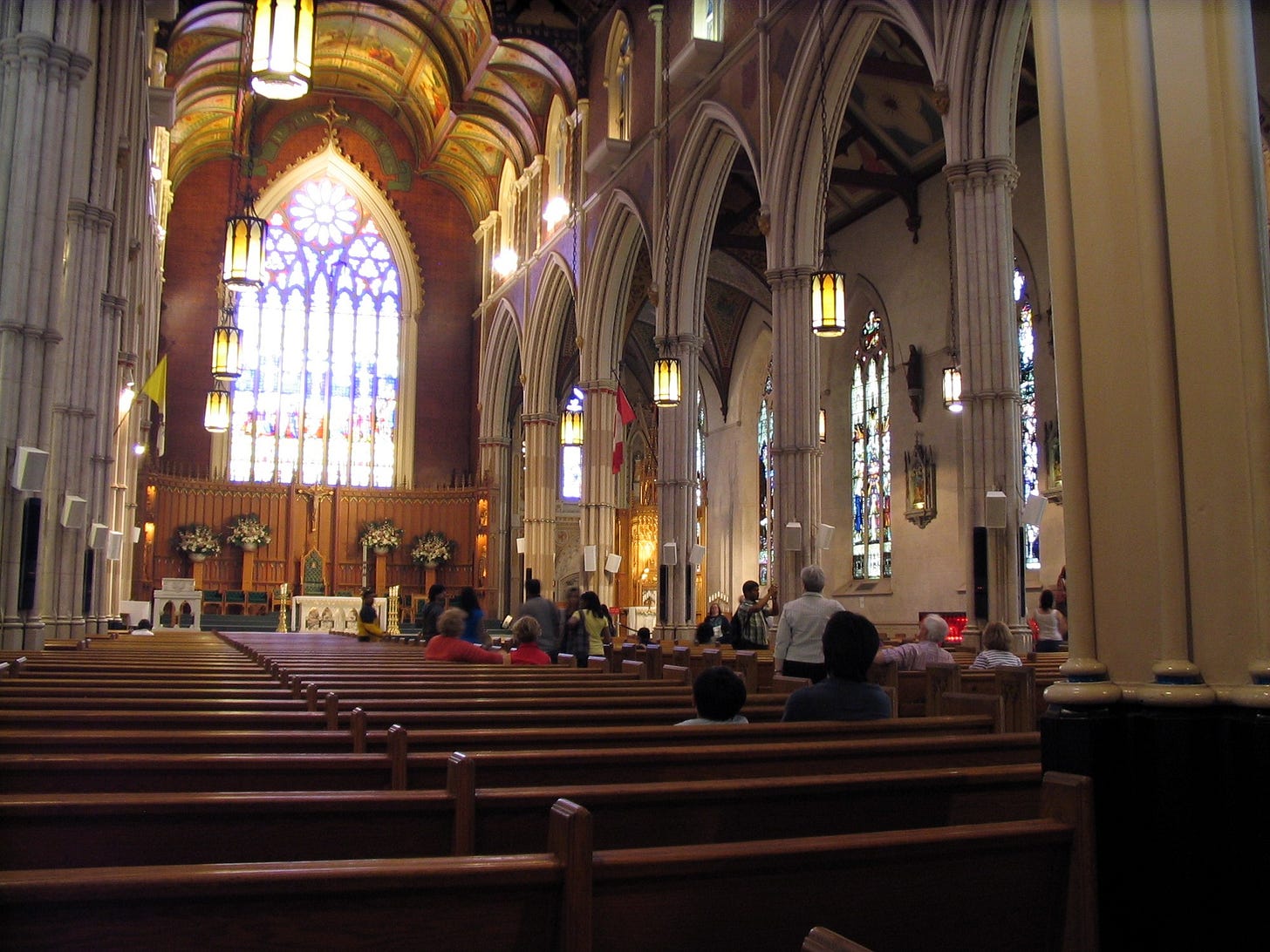Why Don’t People Go to Church?
Sometimes, it’s the people who already do.
"What makes people not come to Church?
Could it be the people who already go?
The righteous, the clique, the worthy,
The disdainful look given, the thought ‘you’re in my seat.’
The unfriendly, so that the stranger remains always so."
That’s not the start of a stand-up routine about Church life. It’s the poem written by Father Pat Brennan, former parish priest at Holy Family Catholic Church in Coventry. After nine years of service, he left, apparently driven out by his own parishioners.
It’s provocative. But it’s also painfully familiar.
The Church says it wants to welcome everyone. The Gospel tells us: “Come as you are.”
But sometimes the parish culture says: “Come as you are, as long as you sit where you’re told, and don’t threaten my routine.”
Ask yourself: is your parish welcoming? Most would say yes. But welcoming to whom?
Welcoming to the person who’s come every Sunday for 30 years and knows the right handshake? Or welcoming to the stranger who sits at the back, hoping no one notices they don’t know when to kneel?
Churches are often warm in words but cold in practice. The Church talks about love and forgiveness whilst some glare at the person who’s in "their pew." The Church preaches about outreach, whilst people can’t remember the name of the person who came last week.
This isn’t a new problem. Parish culture varies. Some churches are stiff and solemn, others practically run on tambourines. But there’s a thread that runs through too many: inwardness. A Church that forgets its job isn’t to guard a club, but to open a door.
Here’s one simple example: Mass times.
During the week, most UK parishes offer Mass at, say, 10am. Perfect, if you’re retired, semi-retired, or just enjoy brunch. For working professionals? Not so much.
It’s not that priests are setting out to exclude people. It’s just habit. It’s how it’s always been. But what message does that send? “Mass is available, to those who don’t have a 9-to-5.”
If the Church wants to reach more people, it might start by tweaking the schedule. Throw in a pre-work Mass. Or an evening one. The sacraments shouldn’t operate on banker’s hours.
Then there’s the modern habit of parish shopping. Thanks to the internet, you can now scroll through parish livestreams like you’re choosing a Netflix show. Want a Latin Mass? There’s a parish for that. Want guitars? There’s a parish for that too.
In theory, this choice should be good. In practice, it can fragment Church life. People drive past three local churches to get to the "right" one, leaving their neighbourhood parish emptier and less diverse. We end up worshipping with people who agree with us, like us, and prefer the same incense (or none). Comforting? Yes. Good for the Church’s mission? Probably not.
Back to Father Brennan. His poem wasn’t just about his experience. It was about a bigger problem: silence. Instead of confronting cliques and cold shoulders, he let the feelings fester. Instead of addressing the problem, he packed his bags.
The truth is, most of us do the same. We don’t talk about the unfriendliness, or the awkwardness, or the subtle exclusion that happens in parishes all over the country. We just drift away.
And that’s the real danger. Not a dramatic exit, but a slow, quiet departure.
So, why don’t people go to Church?
Partly, yes, it’s the culture wars. Partly, it’s secularisation. Partly, it’s Sunday morning hangovers.
But sometimes, it’s simpler than that: the people in the pews make newcomers feel like intruders instead of invited guests. We create Churches that feel more like private clubs than places of radical welcome.
The solution isn’t complicated, though it is difficult. Talk to someone you don’t know. Make space. Change the Mass time occasionally. And most of all, remember why you’re there: to worship God, not guard territory.
If the Church is serious about evangelisation, then it must be serious about this.
After all, Jesus never said: “Love your neighbour - unless they’re in your seat.”
By James Bundy

